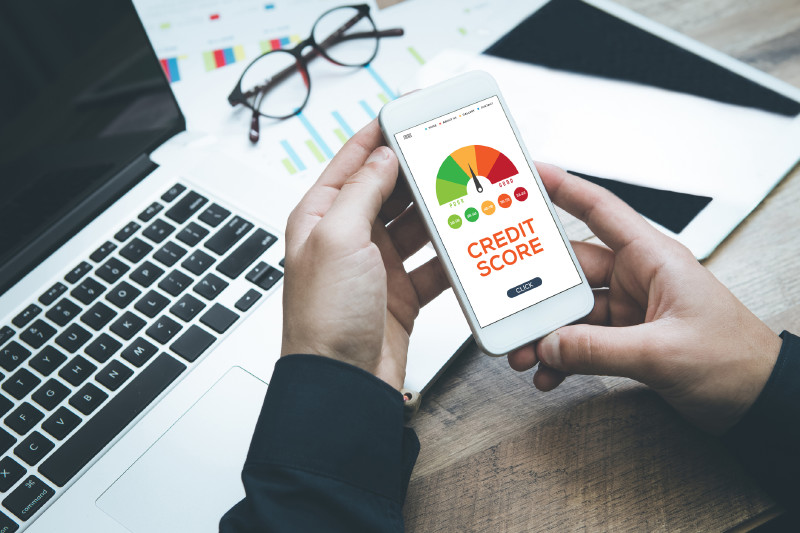Many of us can relate to receiving a letter about a debt that doesn't belong to us - a utility bill that wasn't paid by a previous tenant, for example – and, despite knowing we haven't incurred the debt, it can still be irritating and even worrying being chased for money you don't owe and wondering how, if at all, it may impact your credit score.
When these situations do arise, it's important not to panic. Instead, here’s our step-by-step guide to dealing with creditors contacting you about someone else’s debt...

If the debt isn't yours, contact the company you received the letter from and let them know, so they can update their records.
1. What to do if a debt isn’t in your name
It’s possible that a previous occupier hasn’t informed their bank or lender that they have moved. This can lead the bank or lender to believe the debt is still linked to your address, and why you might receive a letter about a debt that isn't in your name.
The person contacting you will mostly likely be from the company that lent the money or from a debt collection agency. If the debt isn't yours, just contact the company you received the letter from and let them know, so they can update their records. Make sure you have the date of your move to hand. If you have any forwarding details for the previous occupier, please provide them to the company that's trying to get in contact with them.
Still have questions? Citizens Advice has more information here.
2. What to do if your name is on the credit agreement
There is, of course, the possibility that you have simply forgotten about this particular debt. In which case, a reminder can come as a bit of shock. This may also be confusing if you don’t recognise the name of the company contacting you.
If, for example, the debt has amounted on a store credit card, these debts are often administered by a different lender and not the shop itself so it’s understandable that the name may not ring any bells. Either way, if the creditor can prove the debt is yours, they will continue to pursue you for payment. The wisest thing to do is get in touch with the company attempting to contact you.

If your name is on the credit agreement then it is important that you pay towards the debt.
3. What to do if you think you’ve been a victim of fraud
If you are being contacted regarding a debt you do not recognise, contact the company as soon as possible and let them know. They will be able to help you.
For more on how to avoid financial fraud, read our how to guide.
4. What to do if the debt is in the name of a friend or family member
Sharing an address with someone doesn’t mean you have to pay off their debts. You’re only liable for your own debts, or if you took out a joint loan or acted as a guarantor.
5. What to do if it's a shared debt
If you took out a joint loan with someone, or you share a credit card with someone else, you will share the responsibility to repay the outstanding amount, as you are both jointly and severally liable.
Unfortunately, you are liable for money owed on any shared debts, even if you’ve paid your half. And if payments are missed, your credit score may be adversely affected.
6. What to do if you acted as a guarantor
When you act as a guarantor on a loan, you’re agreeing to make any payments if the person should fall behind or can no longer afford to pay the money back. If you have received a letter regarding the debt, that person has most likely missed a payment.
Speak to the person you acted as a guarantor for to make them aware that you’re being chased for payments. If they can’t afford to pay it, you will be responsible for making repayments.
7. What to do if you’re receiving letters for somebody who has passed away
When someone dies, any outstanding debts should be paid from their estate. If you’re receiving letters, let the collection agency or lender know that the person who owes money is deceased. Sending a copy of the death certificate to the collection agency or lender, will speed up the process substantially.

It is important that you address any outstanding debt to avoid adversely impacting your credit score.
8. Lastly, check your credit score
If you’re being chased for payments – even if the debt doesn’t belong to you – it might impact your credit score. Check your credit report with all three credit reference agencies, and contact them directly if there’s a mistake.
If you are being contacted for a debt that you do not recognise, contact us and let us know.
